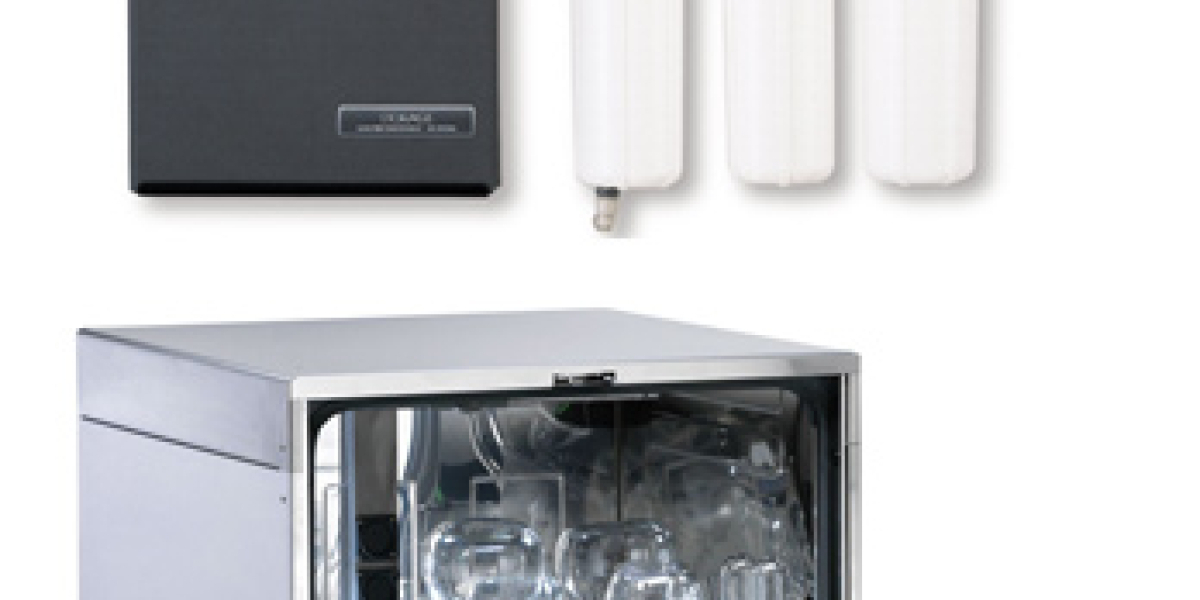Purified water rinses in a laboratory glassware washer

The required purity level of water that is supplied to a glassware washer for rinsing has been the subject of debate in regards to the ultimate goal of producing clean laboratory glassware.
First it should be noted, the term ‘Deionized Water’ does not reference any specific water purity level. The deionization of water is a process that can produce water within a wide range of purity levels. The deionization process can be used to make medium grade water at 10-20 microsiemens of conductivity or it can be used in polishing systems to produce water with a 16-18 megohm resistivity level.
There are four points to consider when selecting the purity level of the water used for rinsing in a stainless steel mechanical glassware washer:
-
All laboratory glassware washers are made with stainless steel interiors and start their rinse cycles with contaminated tap water saturated with laboratory soil and detergent. Using ultra-pure (or 18 megohm) water for the rinsing glassware will not significantly reduce this contaminant load any more than using lower quality purified rinse water. The 18 megohm water will be quickly contaminated as it fills a glassware washer’s stainless steel sump and the resulting purity of the rinse water will never approach 18 megohms.
-
While laboratory Type I Water Polishing Systems actively produce 18 megohm water, storing this water and maintaining its purity is extremely complicated and costly. For example, carbon dioxide in normal air will re-contaminate exposed 18 megohm water, reducing its purity.
-
Deionization filters used in Laboratory Polishing Systems, which are designed to produce Type I water for analytical requirements, will be quickly exhausted due to the much higher water volume usage rate in multiple rinse cycles available with laboratory glassware washers.
- At very high temperatures, 18 megohm water can damage stainless steel and, over a long time period, can corrode the stainless interior of a glassware washer. Given the limitations of initial glassware washer water cleanliness levels, along with the cost of making and storing large volumes of 18 megohm water, it is far more economical to use medium-purity water such as RO water, or deionized 1-20 microsiemen water for the rinse cycles in glassware washer. Medium-purity water systems can make and store large volumes of water at lower costs than 18 megohm water production systems. Laboratory glassware cleaned in a glassware washer with medium grade purified water will be acceptable for most wet-bench chemical analysis. For ultra-low (ppb levels) elemental or organic chemical analysis, further glassware processing will be required. For example, aggressive acid baths, not recommended in a glassware washer, and subsequent rinsing with 18 megohm water can clean glassware to the same ionic concentration levels as found in 18 megohm water. For organic chemical removal, glassware must often be baked-off in an oven.
Labconco has completed third party testing on glassware cleaning efficiency using 1 micro ohm/microsiemen purified water rinses in the FlaskScrubber Glassware Washers. Chemical contaminant carry-over tests have been completed with the FlaskScrubber Glassware Washer using analytical test methods EPA 200 series metals, EPA 524.2 volatile organics, EPA 525.1 semivolatile organics and EPA 8270 semi-volatile organic compounds. Results measured remaining contaminants at the parts-per-billion level.
The significance of this test data will vary based on application and analysis needs. Test results for the analytes tested are available in spreadsheet format from Labconco Corporation.
For Labconco’s glassware washers, we recommend our WaterPro RO Station. The internal 17 liter storage tank supplies up to 2 rinses, out of the potential 6 rinses, of RO water. If the glassware washer will be programmed for 6 rinses in pure water, we recommend the addition of our 70 Liter RO water storage tank. Labconco’s glassware washers use 12.9 liters of water for each fill. Two fills of tap water are required for detergent washes and up to 6 rinses with tap water or pure water are available, each requiring 12.9 liters.
| chevron_left | Visit us at Pittcon booth 1525! | Articles | Need personnel protection? Take a look at the Purifier Class I Enclosure | chevron_right |






